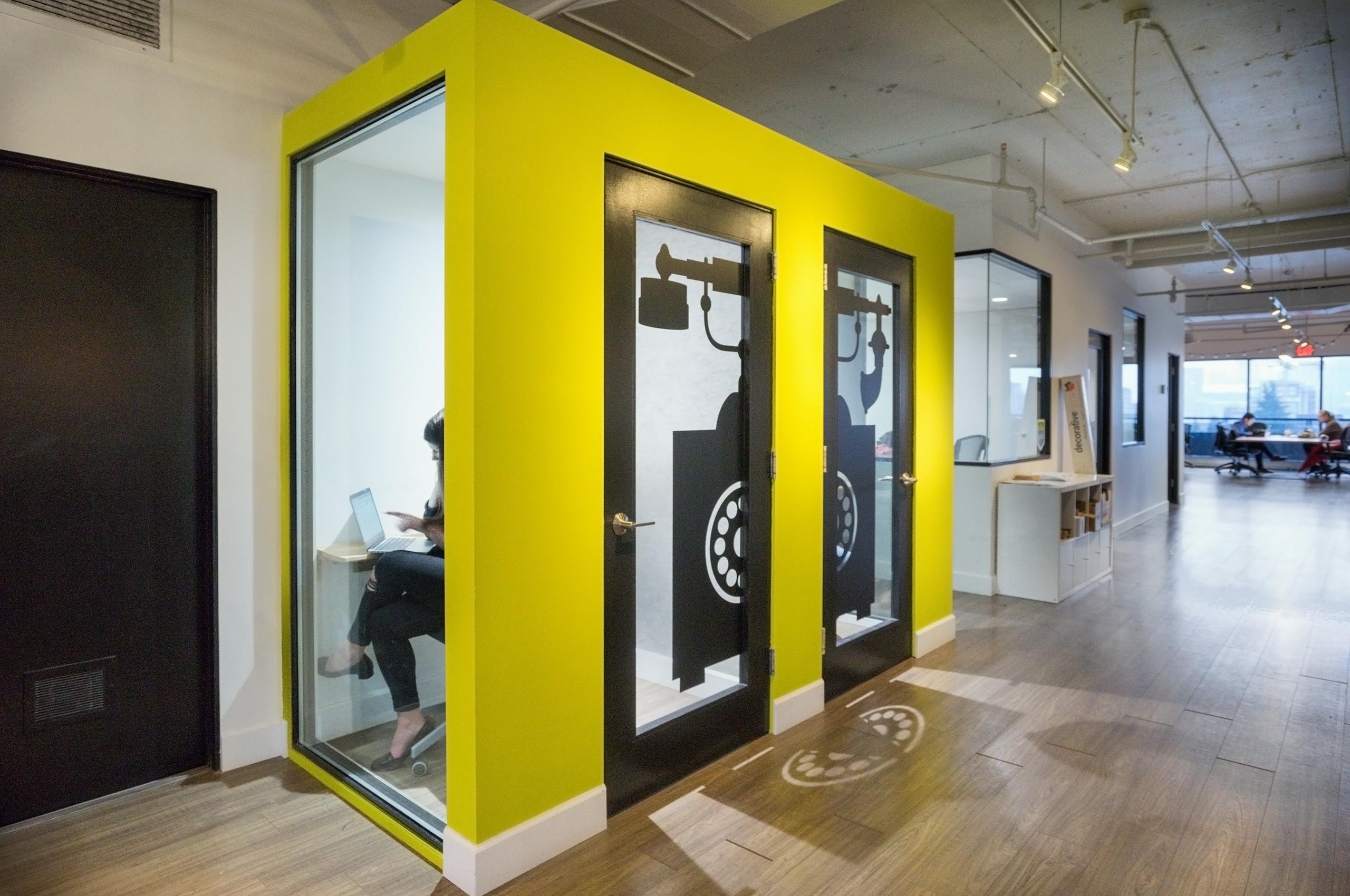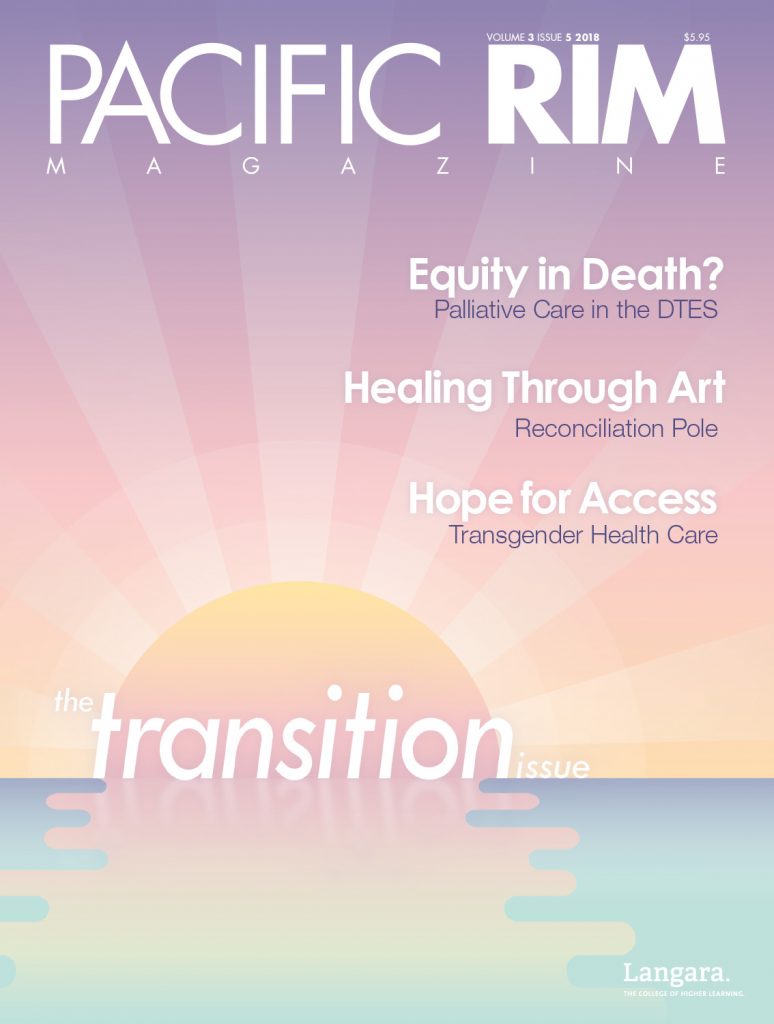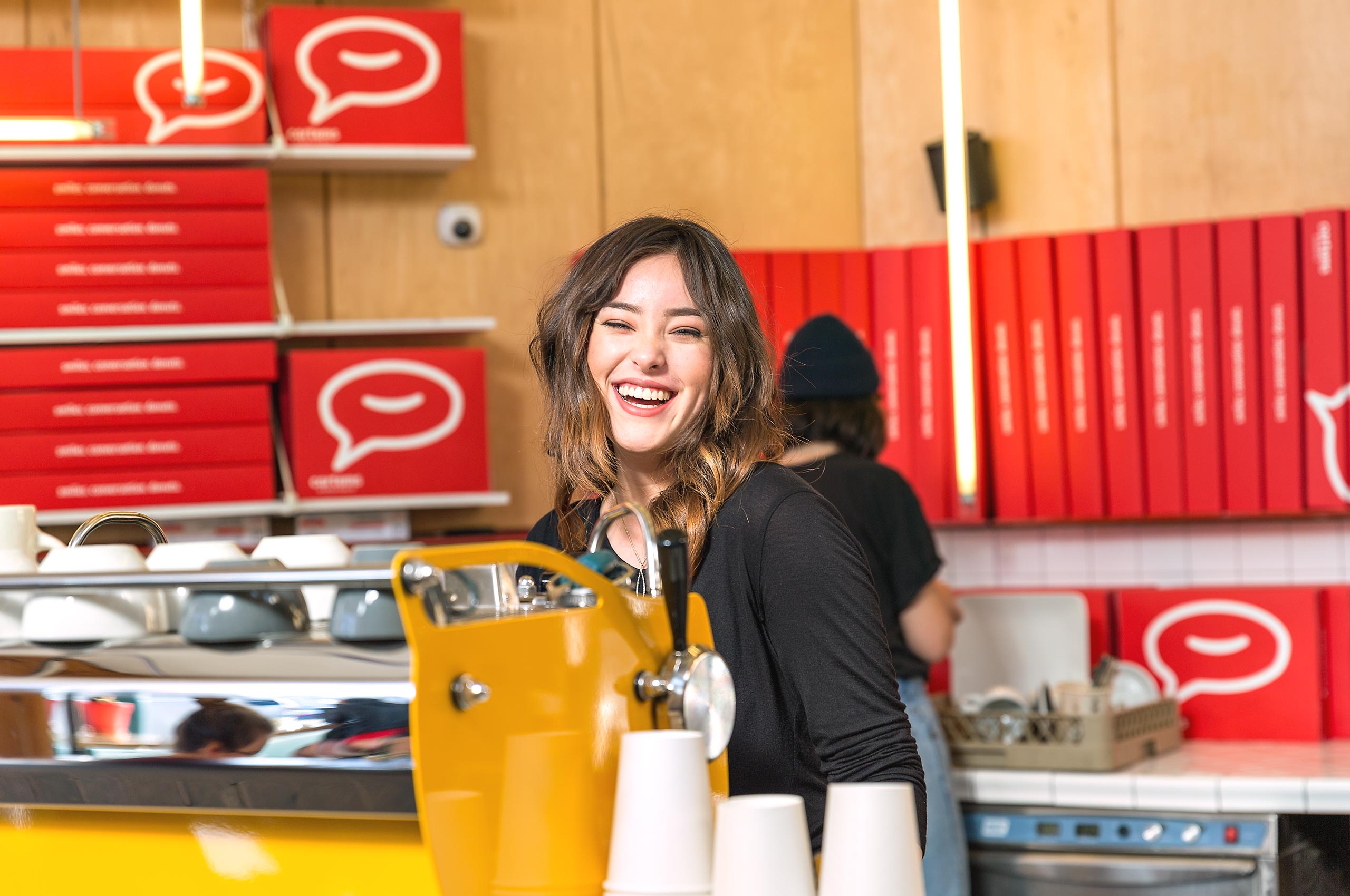Coworking spaces allow independent professionals (freelancers, entrepreneurs, and self-employed individuals) to work alongside one another on their separate projects while sharing a common space.
Coworking spaces are spreading rapidly across the globe. According to Statista, the number of coworking spaces has grown from a mere three to 13,800 worldwide from 2005–2017. According to the 2016 Global Coworking Survey conducted by the Global Coworking Unconference Conference, 27 per cent of coworking spaces in Canada, and 35 per cent of coworking spaces globally, had been in existence for less than a year.
Vancouver, BC, a hub for freelancers, has many coworking spaces popping up around the city, which is fortunate considering the high cost of the city’s real estate and rental spaces.
Whether it’s a daily drop-in, a weekly pass, a monthly membership, or a private desk, coworking spaces make it easy with flexible options. Members are entitled to the perks of amenities such as high-speed Internet, free printing, private meeting rooms, kitchen facilities, and much more. Some spaces, such as The Network Hub, with several locations across BC, offer health plans. Other spaces, like Suite Genius, located in both Mount Pleasant and Kitsilano, let you bring your dog to work.
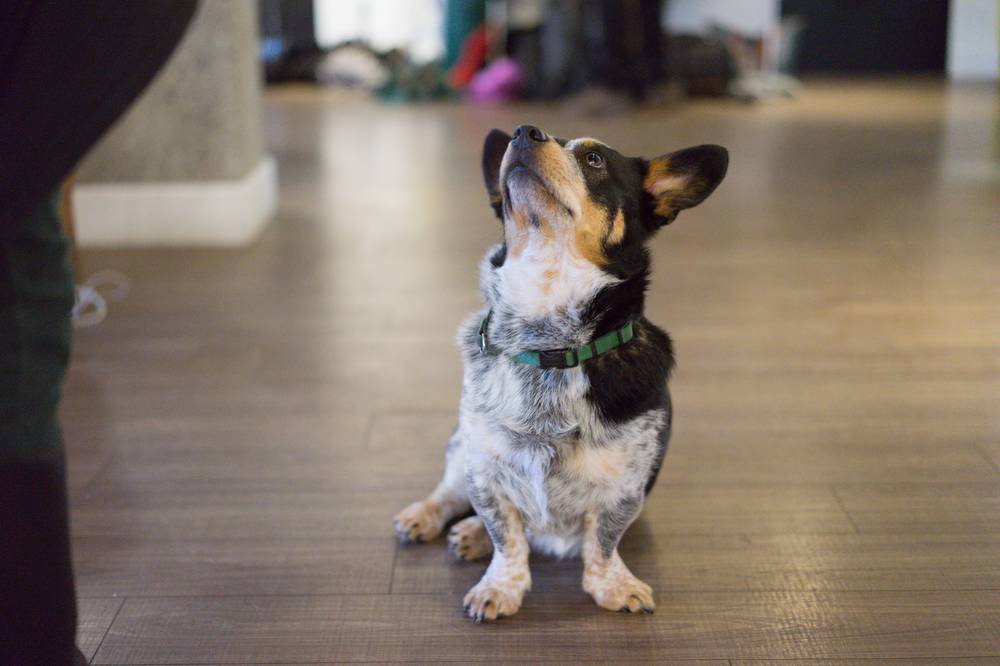
“Here, in particular, you have everything,” says Anja Jane, studio manager and member at The Aviary in East Vancouver. “You have a place where, if you have clients coming, it looks like a bigger, more professional operation than having them around in your living room.”
Open Concept
Design seems to be key in communicating the ethos of open concept, high-tech coworking spaces. Take, for instance, Werklab Inc., where you step into a high-ceilinged, open concept space with fresh white walls and accents, trendy furniture, contemporary art, and big windows overlooking the Strathcona neighbourhood of Vancouver.
Open concept, however, isn’t without its issues. “I guess in any open plan environment, you don’t have full privacy. So, while it doesn’t bother me, maybe it would bother other people… but there’s also so many benefits to working in an open-plan space,” Jane explains.
For some, work ethic and style may improve due to the influence of peers and physical environment. Jane describes how her artistic style has changed since working at The Aviary. “I’ve always worked in art spaces with other artists, but here it’s more professional interior designers, architects… and so I think that has influenced my work. It’s a much more clean aesthetic that I don’t know I necessarily had before.”
There is also more freedom, as a lot of coworking spaces are open 24 hours a day. Dakota Park, co-founder of Space Coworking in Whistler, explains “Access is something we have really focused on. Given the active lifestyles of our members, we wanted to ensure that the space was accessible 24/7 and that it provided all the amenities that would help to create a productive and creative environment.” Membership access to coworking spaces allows creative professionals the flexibility they need.
Community
Community connection is another reason why individuals thrive in coworking spaces. Mitchell Purdy, owner of Suite Genius, explains the positive connections that develop in coworking spaces, “A surprising amount of time you do see people work together. You see those connections quite a bit, it’s cool to watch.” There are plenty of opportunities to mingle, bounce ideas off one another, and join forces with professional peers.
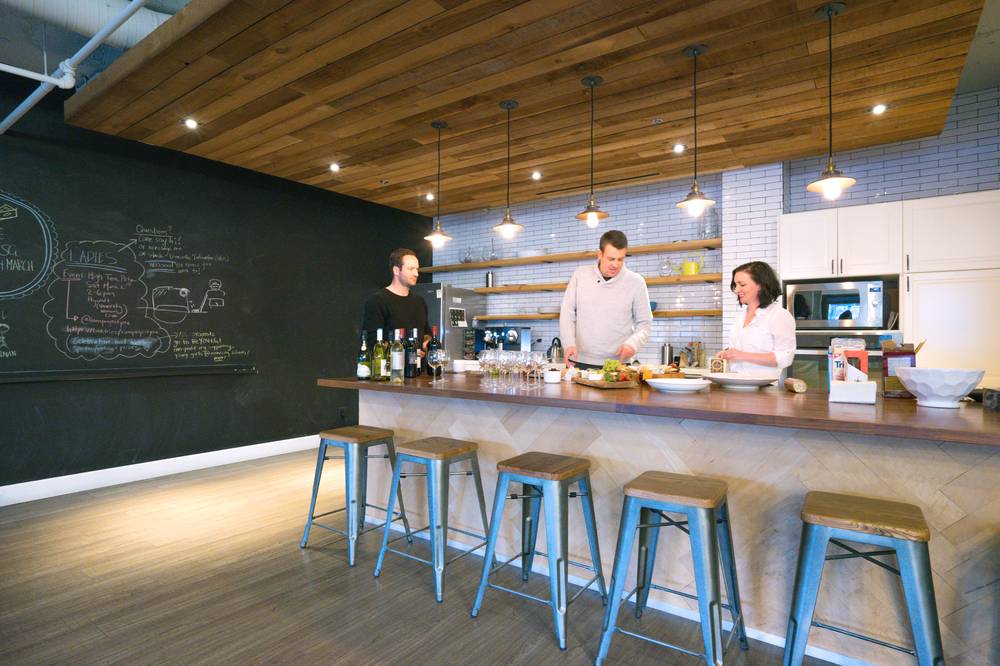
Park says his favourite thing about coworking spaces is the energy, “This is something that you just can’t get in a coffee shop or a library. When likeminded people come together, all working toward great things, something amazing happens. Plus, it’s great to meet new people on a regular basis.” Park’s vision for Space Coworking was to create an inspiring and comfortable atmosphere that encourages collaboration.
In fact, many coworking spaces host socials to encourage interactions among members. Purdy explains, “We have a few select things we do to try and encourage membership collaboration. We try to enforce happy hours, some member dinners and stuff, and they’re great. It allows people to be like, ‘Oh hey, that’s the person I’ve been sitting next to for a month but haven’t said hi.’”
For the nomadic types that hop from city to city, coworking spaces provide a much needed alternative from working in coffee shops. Digital nomad Jacob Young, head of operations for Clever Zebo, has worked for over three years using coworking spaces in places like Mexico, Spain, Colombia, and Portugal. Young prefers coworking spaces over cafés for the reliable Wi-fi, and the professional, quiet space where he can make phone calls. He also enjoys the strong sense of community and social activities these spaces foster.
“Social activities are always a plus,” says Young. His all-time favourite coworking space is Siembra Coworking in Medellín, Colombia, “On top of the usual amenities, they have a cool community and social activities like yoga and pub crawls.” Using coworking spaces can be a great way for digital nomads to get their work done while meeting new people during their travels.
There is also an international connection between many coworking spaces. For instance, Suite Genius is part of a global initiative called Coworking Visa, whereby mobile workers can travel and work in over 200 participating locations across the world. As a participating location, Suite Genius members are entitled to one to three free days at any of the Coworking Visa locations around the globe.
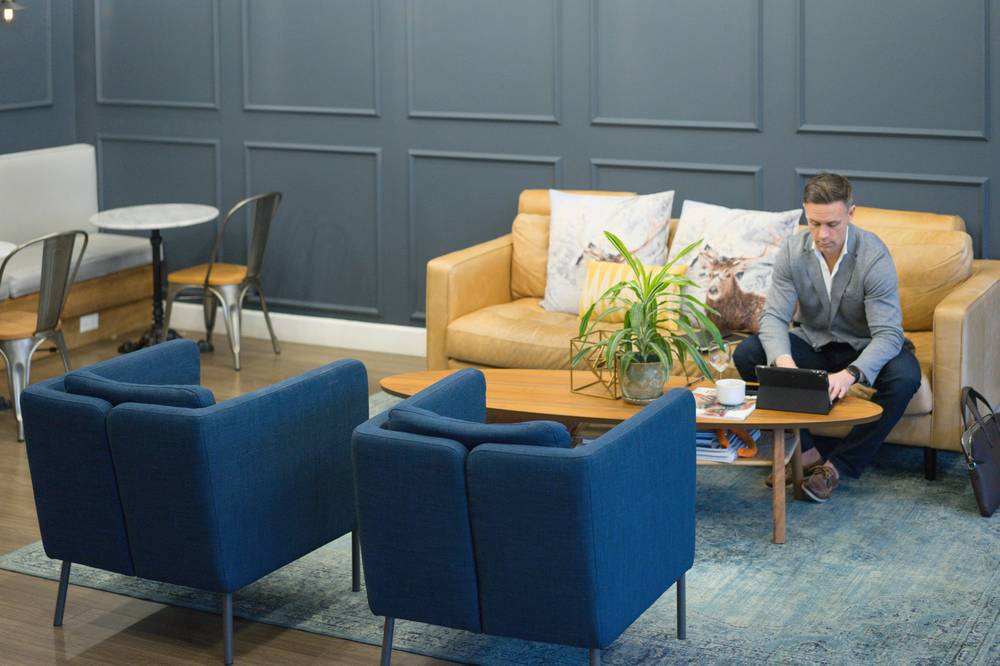
Looking Forward
What does the future look like for coworking spaces? Purdy explains, “People aren’t having to sell the idea of coworking as much anymore. The shift is happening, people are starting to work from their computers more, work remotely more, which allows for a coworking space to help out.”
Coworking companies are making headlines as they become major players in real estate markets globally. In a Bloomberg article written by Jack Sidders and Giles Turner, WeWork, a global network of flexible workspaces, is about to become the largest renter in London, England. And Spaces, an Amsterdam coworking space, signed the largest rental deal in September 2017 in Hong Kong, according to South China Morning Post’s article by Sandy Li.
Most of the coworking spaces in Vancouver are at full capacity. Coworking spaces offer amenities, a convenient and flexible lifestyle, and opportunities to network and collaborate with peers. It’s no surprise that the demand is there, and when the demand is there, the spaces will follow. Could it be that one day the coworking movement will surpass the traditional office? Where will you work?





